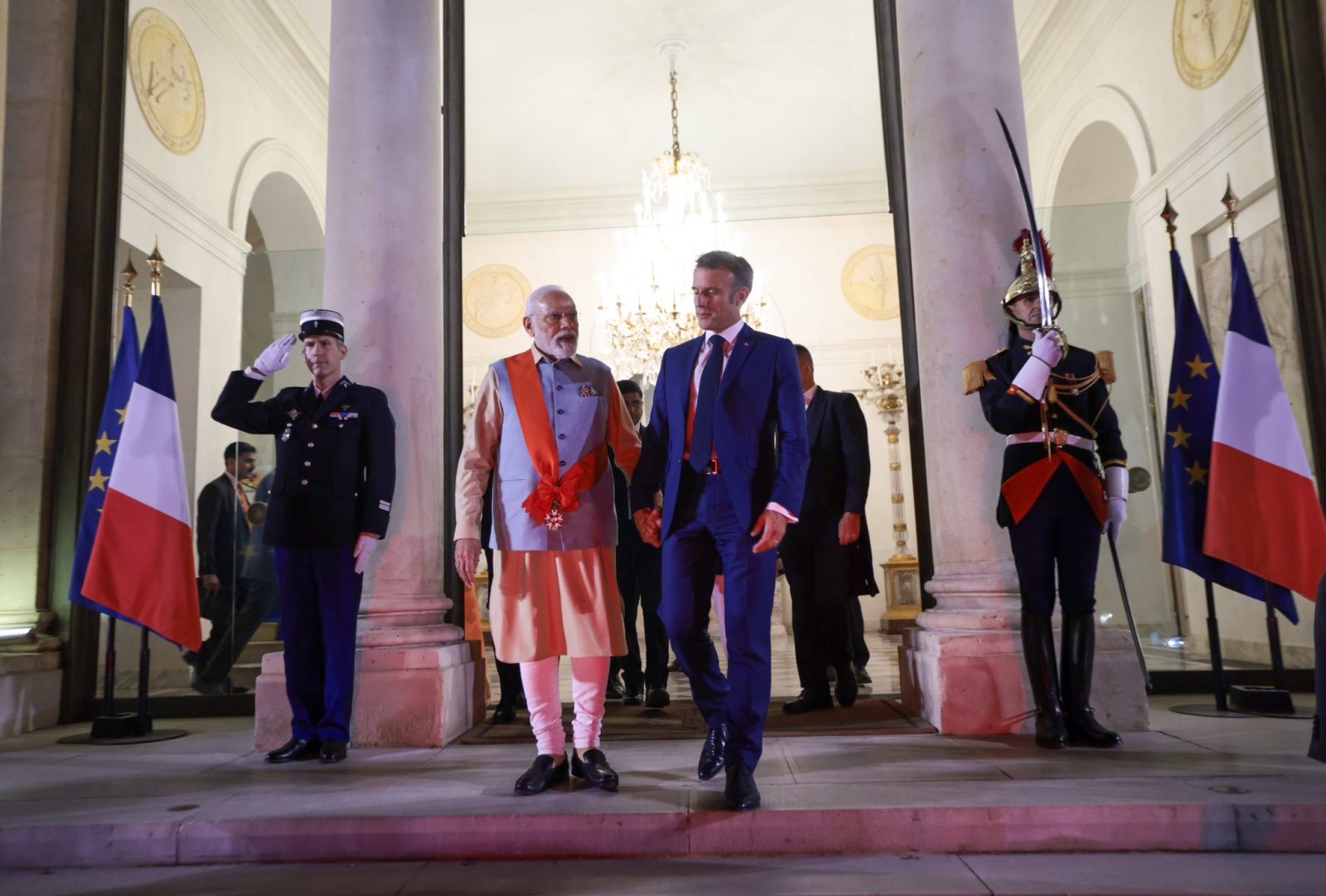Indian Prime Minister Narendra Modi was bestowed with a prestigious accolade as the guest of honor at France’s Bastille Day military parade. This visit not only solidified high-profile defense deals but also showcased the deepening strategic partnership between India and France. The celebrations took place amidst delicate times for French President Emmanuel Macron, who faced public discontent over policy decisions. However, the visit served as an opportunity to strengthen ties between the two nations and address shared concerns in the Indo-Pacific region.
Indian Prime Minister Narendra Modi was accorded a remarkable honor as the chief guest at France’s Bastille Day military parade, underscoring the growing partnership between the two nations. The visit proved instrumental in finalizing significant defense agreements and showcased the close ties between India and France.

During the event, Modi and President Emmanuel Macron witnessed the splendid march of French and Indian soldiers down the iconic Champs Elysees avenue in Paris. Adding to the grandeur, the Indian Air Force’s Rafale fighter jets, which were acquired from France in 2015, took part in a spectacular flypast over the historic Arc de Triomphe.
Bastille Day holds historical significance as it commemorates the French citizens’ storming of the Bastille fortress in 1789, symbolizing the overthrow of the oppressive French monarchy. While Macron’s presence at the parade was met with some boos from the public due to controversial policy decisions, the occasion served as an opportunity to celebrate the alliance between India and France.
Prime Minister Modi’s two-day visit to Paris began with the prestigious Legion of Honour being conferred upon him, the highest award bestowed by France. Expressing his gratitude, Modi humbly acknowledged the honor on Twitter, stating that it was a tribute to the 1.4 billion people of India.
President Macron, in a speech, emphasized India’s historical and future significance, highlighting its pivotal role in shaping the world. He referred to India as a strategic partner and a friend, emphasizing the importance of the Indo-French alliance.
During the visit, the Indian defense ministry provided initial approval to procure an additional 26 Rafale jets for the Indian Navy, along with three Scorpene-class submarines. These defense agreements deepen the collaboration between the two nations and enhance their presence in the Indo-Pacific region. The total value of these purchases is estimated to be approximately $9.75 billion, subject to negotiation.
Despite differences over Russia’s actions in Ukraine, Western nations, including the United States, have been seeking closer ties with India, recognizing its potential as a military and economic counterweight to China. France has been a steadfast partner to India in Europe for several decades, demonstrating its support by refraining from imposing sanctions after India conducted nuclear tests in 1998.
India’s reliance on French fighter jets spans four decades, beginning with the acquisition of Mirage jets in the 1980s, which still constitute two squadrons of the Indian Air Force. The need for modernization, coupled with maintenance challenges with Russia’s aircraft and delays in India’s indigenous manufacturing plans, paved the way for these new defense deals.
Later in the visit, President Macron hosted Prime Minister Modi at the Elysee Palace for talks, followed by a state banquet at the renowned Louvre Museum, further strengthening the diplomatic ties between the two nations.

However, Modi’s visit received criticism from human rights organizations concerned about the perceived authoritarian direction of India’s ruling Bharatiya Janata Party (BJP) and allegations of discrimination against minorities, particularly Muslims. While acknowledging India as a friendly country, French leftist leader Jean-Luc Melanchon criticized Modi as a far-right leader hostile to Muslims in his own country. Human Rights Watch expressed deep concern over celebrating the idea of equality and liberty with a leader accused of undermining democracy in India.
Despite these concerns, France views its strategic partnership with India as pivotal in consolidating its alliance network in the Indo-Pacific region. This is especially significant given France’s recent setback when Australia decided to cancel a major submarine contract and formed the AUKUS alliance with the United Kingdom and the United States. Both India and France share interests in the Indian Ocean and harbor concerns about China’s increasing assertiveness in the region.
In conclusion, Narendra Modi’s presence as the guest of honor at France’s Bastille Day parade marked a significant milestone in Indo-French relations. The visit not only solidified defense ties and showcased military cooperation but also served as an opportunity to address shared concerns in the Indo-Pacific. Despite criticisms, the strategic partnership between India and France remains crucial in navigating geopolitical challenges and promoting regional stability.





